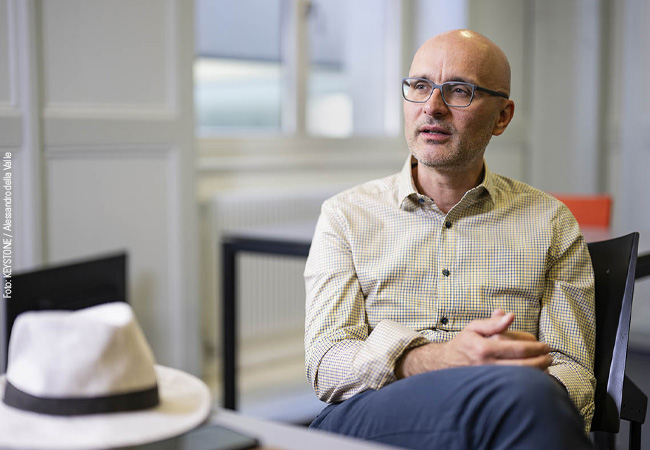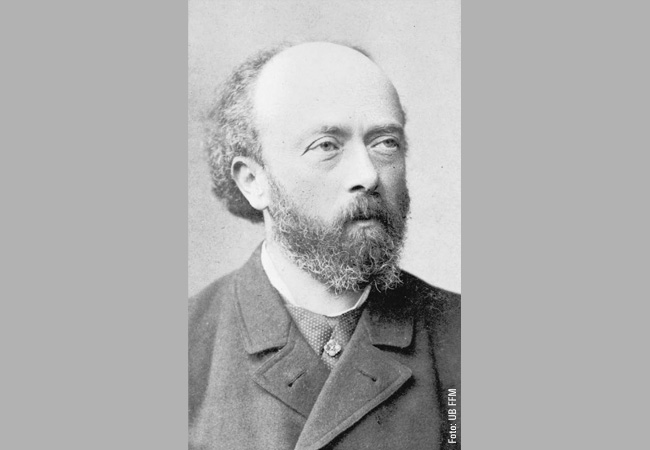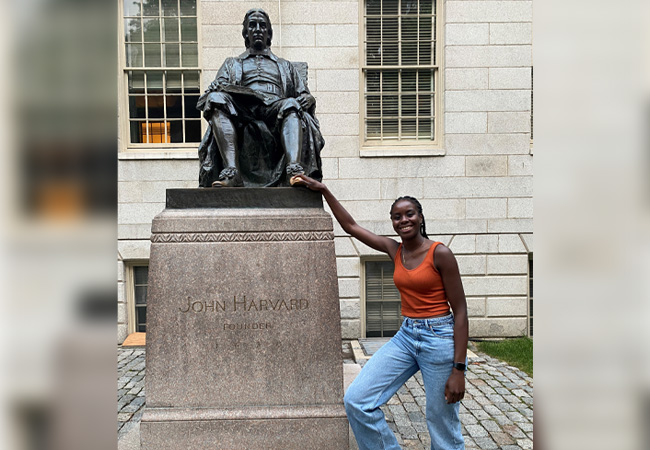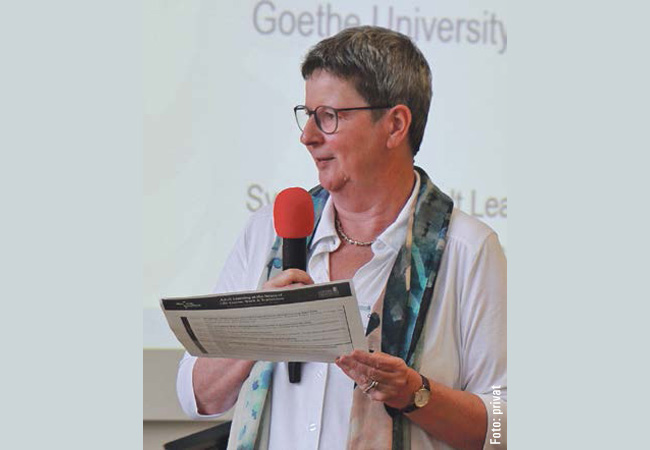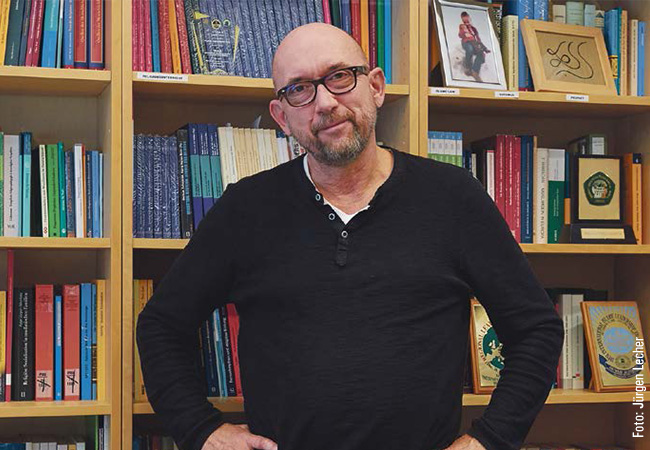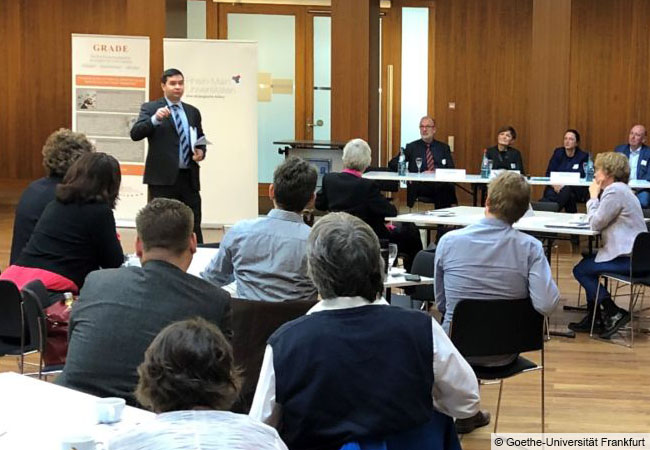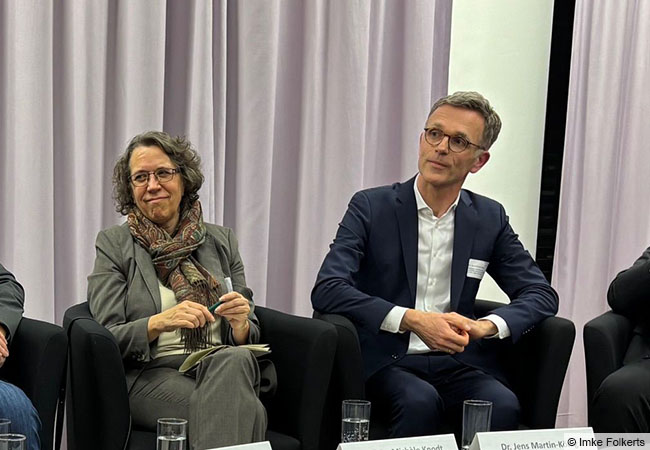At the tender age of 23, medical student Diana Munteh already has several different strings to her academic bow. She recently returned from a three-month research stay at Harvard Medical School – with many positive impressions and best practices for her further medical studies.
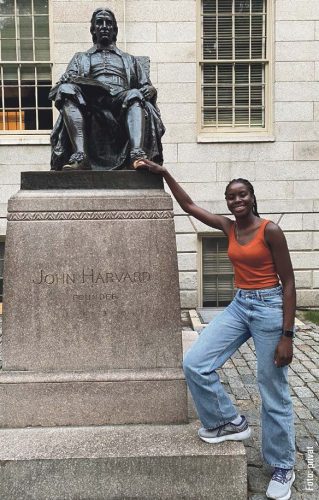
Diana Munteh originally wanted to study physics and chemistry, but after two semesters at the University of Düsseldorf she quickly realized that neither subject was right for her. She decided to study medicine instead. Wanting to study in a large city with many possibilities, Frankfurt seemed like a good choice, and, as it turned out, she found it considerably easier to connect with other people here.
Currently in her ninth semester, Munteh is now writing her doctor’s thesis under the supervision of Prof. Volkhard Kempf, and simultaneously researching Bartonella bacilliformis at the LOEWE Center DRUID (Novel Drug Targets against Poverty-related and Neglected Tropical Infectious Diseases). Known by its German acronym, LOEWE stands for the state of Hesse’s offensive to develop scientific-economic excellence. The LOEWE Center DRUID focuses on neglected tropical diseases, which are responsible for many hundreds of millions of people around the world becoming either seriously ill or dying, thereby reinforcing the cycle of poverty.
From Frankfurt to Boston
Doctor and microbiologist Prof. Kempf supported Munteh’s plans for a research stay at the Ivy League Harvard University, from which she only recently returned after having spent three months studying AI in neurosurgery at Brigham and Women’s Hospital’s Computational Neuroscience Outcomes Center.
Munteh says it was only when she found herself standing on the campus in Boston, being welcomed by her supervising professor, that she realized she really was going to Harvard. From then on, however, she felt right at home. What really impressed her was the level she was expected to work at right from the outset. “Everyone knows that we are here because we’re good at what we do – which is why everyone in my research group saw the others as peers,” she recalls.
In addition, the financial resources were also much more extensive than she was used to from Germany. That being said, however, this also puts enormous pressure on researchers, with very high expectations placed on them. As such, she was expected to publish something after her three-month stay, at least as a co-author. “The demands are high, but this was communicated clearly right from the beginning.”
It’s a different world from that of German universities, she says, where students receive the necessary support at the beginning of their degree courses and are not immediately subjected to such huge pressure – adding that this is something she values about Goethe University. She herself received a lot of support from her supervisor Prof. Kempf, Munteh reports, particularly when she first started her dissertation. With several semesters under her belt and after having participated in the doctoral colloquium and previously spent a period in Vienna, however, she felt she was well-prepared for the trip to Harvard.
She says she could certainly imagine living and working two or three years in the US, a country whose endless possibilities, especially in research, definitely impressed her.
Benefiting from a stay abroad
There are many benefits to spending a period abroad during one’s studies, irrespective of whether this is in the US or some other corner of the world, Munteh says, adding that she would recommend going abroad to anybody. All the same, she can understand that the hurdles might be too great for some, especially for medical students. “Without the support of my parents and the research institute in Harvard I would not have been able to afford the journey.” Munteh also readily accepted that fact that her stay abroad has extended her studies by a semester.
Being able to go to Harvard was definitely a stroke of luck, not least because she also gathered a lot of different experiences beyond her own research work in the laboratory. In addition to medicine, she also takes a huge interest in economics, is a member of Goethe University’s Founders Club and the Stiftung der Deutschen Wirtschaft [Foundation of German Industry], and is active in the start-up scene. To further her education outside medical school, she has already completed several internships at various healthcare start-ups and advisory centers.
During her research stay, she also had the opportunity to get to know the Innovation Hub at Harvard Business School and take part in events on the topic of venturing in medicine. As such, Munteh attended a conference in New York City where she got to know David Langer, chair of neurosurgery at Lenox Hill Hospital. If everything goes according to plan, after her second state examination she will spend a year working in his hospital start-up in New York City.
More digitization, also in medicine
One reason why Munteh’s stay in Boston was so beneficial was that the topic of digital medicine – one of her special interests – is already an integral part of studies there: In Harvard she could choose between more than 100 elective modules – ten of them dedicated to future topics such as AI in medicine and health economics. There is progress in this field in Germany as well, Munteh says: “I’m happy to see that the topic of digital medicine is appearing more and more often at Goethe University, too.”
She is not yet sure whether she wants to work as a doctor once she finishes her studies. While Munteh says she could certainly imagine working with patients, a look at her résumé seems to suggest that at some stage she will work in the private sector and do something with digital health. Even if she is still unsure where the road will lead her, she definitely wants to complete her training as a specialist – and then maybe go to the US for a limited period.


